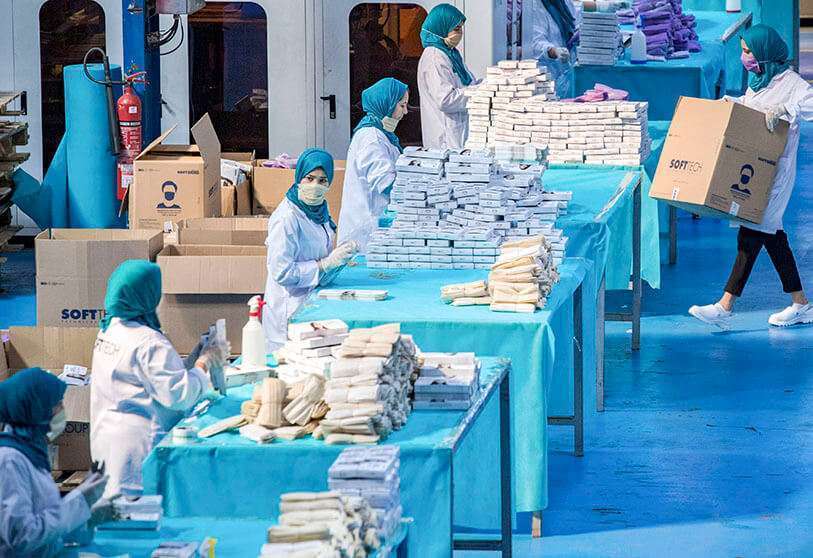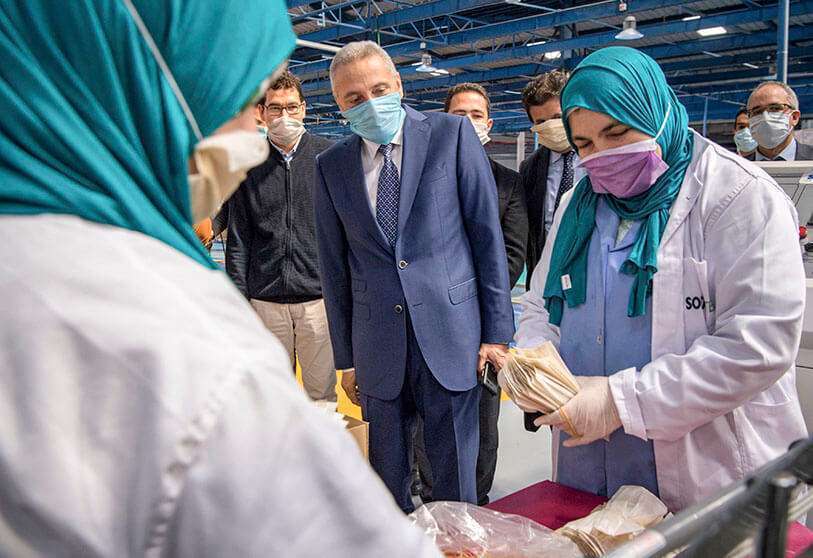Marruecos prevé no prolongar el confinamiento general más allá del 20 de mayo

The general confinement in force in Morocco as a result of the state of health emergency due to the coronavirus pandemic will not last beyond 20 May. This has been published in several Moroccan media, including the semi-official Le360. The good epidemiological figures and the need to resume economic activity make this advisable. The neighbouring country is therefore already preparing for a return to normalcy. Good news, although the situation recommends caution. "Given the encouraging signs of the changing mortality curve, the government will be able to begin the process of exiting confinement on May 20. There is no other option on the table than de-confinement," says the government source quoted by Le360. The beginning of the return to the new normality will practically overlap with the end of Ramadan, which keeps Moroccan society in a kind of lethargy at the moment.
Exactly two months after the first death was recorded in Morocco, the mortality rate stood at 0.48 per 100,000 inhabitants in midweek - a rate that has been falling in recent days -; data that is far below, at least according to official figures provided by the authorities on both sides of the Straits, to, for example, the Spanish, which stands at 51.87. The French fall to 35.33 and the Italian to 45.81. The Moroccan authorities claim that only 14% of the existing intensive care units in the national health system are being used. At the time of writing, Morocco had 4,687 infections and 172 deaths from COVID-19.
According to data from the Moroccan health authorities, a total of 38,102 detection tests have been carried out since the beginning of the pandemic. A figure, however, far below the forecasts. This is a figure far below expectations, especially since the arrival of tens of thousands of immunodiagnosis kits from South Korea several weeks ago to control infections in a country of more than 35 million people.

The Moroccan government is currently finalizing a plan for a way out of the crisis, like those already made public by other countries like ours. The Moroccan economy cannot afford to remain in the current situation for too long: nearly 60% of companies ¬-142,000 companies-, the vast majority of which are small, reported at the beginning of April in a survey by the High Commission for the Plan -the state statistics agency, HCP in its French acronym- to have totally or partially stopped their activity, 800,000 people have stopped working as a result of the paralysis and the state is making a great financial effort to support the hundreds of thousands of families in the most precarious situation. This Tuesday the same HCP estimated that the Moroccan GDP will fall by 6.8% in the second half of the year and the IMF set the decline for the year as a whole at around 3.7%. And also this week it was known that the credit rating agency Fitch had lowered the Moroccan perspective from 'stable' to 'negative', maintaining the BBB- rating. "We foresee a contraction of the Moroccan GDP of 4.5%, putting an end to 22 years of continuous growth," the agency said on the 28th.
The neighbouring country therefore has little choice but to progressively return to most activities, based on domestic demand and the export sectors that have been least affected during the coronavirus pandemic: phosphates and the automobile. In fact, PSA Peugeot Maroc, the subsidiary of the French car manufacturer, announced this week the imminent return of the activity of its facilities in Kenitra, according to the newspaper L'Économiste, quoting the company's management. As in the case of many other countries, the hotel and catering sector will remain the longest burdened by the paralysis. For its part, the General Confederation of Moroccan Enterprises (CGEM), the employer's association of the neighbouring country, announced this Thursday that it is preparing its return to normal activity, after having prepared three practical guides and a training kit aimed at companies according to their size.
Everything points to the fact that deconfinement will differ from one region of the country to another and will be done by taking an administrative unit such as the province. However, according to the interior minister, in a statement attributed to him by the Médias 24 website, "movement between cities, provinces and regions will be one of the last things to be restored". The decision to stop traffic on the horizon of 20 May is, in any case, not without risk, given that the number of screening tests carried out remains low and taking into account the limitations of the Moroccan health system.

In the meantime, Morocco has begun to export its brand new 100% domestically produced masks, mainly to Europe, where there has been a shortage of supply. A source of pride for our neighbours that has not gone unnoticed outside the Maghreb borders. Initially the Moroccan authorities had in mind to sell their medical equipment outside, but the exceptional situation and the logistic problems registered in the first dates made them think about it better and last April 10th they announced that the 'stock' would stay at home. Now the Moroccan authorities have decided, taking into account that there are already masks to spare, to start exporting. "We have demand from several countries and as national needs are covered, we will authorize companies to export in several weeks," said the Minister of Industry and Trade, Moulay Hafid Elalamy, in a statement to the Friday edition of the French newspaper Le Monde.
The minister also reported that in recent days the pharmacies - where they are sold exclusively and in packages of ten units - were supplied daily with 4.5 million masks. The minister specified that the number of companies that manufacture this medical material had risen to 34 throughout the country and that five of them already export half of their masks to Europe. Elalamy is pleased that the Moroccan production fabric has been able to produce some seven million masks a day from scratch. It should be remembered that since 7 April the use of the mask - sold at 80 dirhams, about 7 cents, thanks to the subsidy from the Solidarity Fund for the Management of the Pandemic - has been compulsory for everyone who leaves their homes in Morocco.








